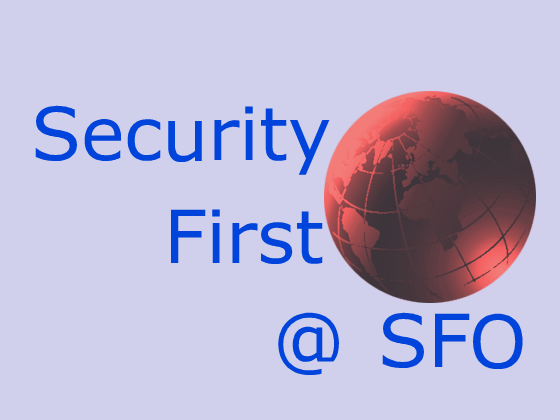We know there has been some confusion lately on some of our posts in terms of pay bands, TSA, money, etc. Let's try to clear some of this up.
TSA has a system called PASS (Performance Accountability and Standards System). This system is basically an incentive system. TSOs, LTSOs, and STSOs are graded on various metrics. Some of those include how well you scored on PSEs, IMAs, OMAs, OLC completion rate, quarterly reviews (yeah, when was the last time we had one of those?), et. al. How you score and are graded on those things determine your bonus and raise.
You can also get bigger raises by taking on additional duties, called collateral duties. Those duties can include being an OJT monitor, an instructor, being responsible for calibrating and general maintenance of various equipment.
There is some controversy within the TSA work force over PASS. People feel it can be unfair to have your raise determined by how well you do on a PSE. How many of us have had brain farts on it and failed? If you have a brain fart at that crucial moment, your raise can be lower. Hence, the reason many within TSA are arguing to become unionized. Many feel that the PASS system is an unfair system.
Keep in mind, TSA at the minimum, receives their COLA (Cost of Living Adjustment) regardless. Most of the time that COLA is 3.9%. What has our raises been???
Ok, so let's get into numbers. A TSO starts at Pay Band D. The minimum that a starting TSO will make is $25,518 plus 35.15% locality rate for the Bay Area. That comes out to $34,487.58 as a minimum. A TSO at the D Band will max out at $38,277 with the locality pay of $51,731.37. These are the base rates. They do not include the various incentives one can receive within TSA.
The above rates work out to approximately $16.58 per hour up to $24.87 an hour. These are for TSOs at the D band. LTSOs will generally start out at F band and STSOs will start out at G band. If you want to check out these numbers, go to TSA's page listing all the pay rates for the various pay bands. And remember when you are factoring the hourly rates for the various bands, to add the 35.15% locality pay.
Now there are some caveats. TSA rarely hires full time employees off the street. You will generally have to put in some time, as much as two years before you can even go full time.
Speaking of two years, their probation period lasts for two years. Unlike our four month probation period, they have a much longer time on probation. However, they don't enforce their attendance policies with the same vengeance that Covenant Aviation Security does. To be fair, the Federal Government gives Covenant Aviation Security more money if attendance is high. So it's in Covenant Aviation Security's financial interest to ensure we all show up to work.
TSA also has to pay for a certain percentage of their health and dental coverage. Unlike us, where we get free Kaiser (and a damn good Kaiser plan) for ourselves and a partner, they have to pay. This is not unlike most companies. We admittedly do have it good in terms of our benefits. Except for the fact that TSA has their Federal pension plans. When is ours kicking in?
Now you all have a general idea of what is what. The GAO (Government Accounting Office) concluded that SPP airports such as SFO cost 17.4% more than their federal counterparts. That GAO report is very interesting and worth giving a read.
Under our CBA, the workers that benefit the most from it are new people. They would make less under TSA. For those of us that have put in three, four, five, or more years, we're losing out. Plain and simple. So why is this? Who exactly does this CBA benefit? SEIU, Covenant Aviation Security, TSA, or us?
According to the ATSA (Aviation Transportation Security Act), we're supposed to be paid the same or more than our federal counterparts. So why aren't we? Well, it could very well be because of our CBA. A legal loophole for Covenant Aviation Security not to pay us the equivalent.
It's time to decide guys. Which way are you going to vote in terms of our representation? What exactly do we get for the $500,000 approximately a year that goes to SEIU?

Also, in TSA you get 10% more for working after 1800 and/or on Sundays, even if that is your regular shift. The SEIU is bogus. They may help the occasional employee, but they have never done anything that helps everyone.
ReplyDeleteYes, I completely forgot to mention the shift differential. That is true. When you start adding it all up, we're getting screwed all the way.
ReplyDelete